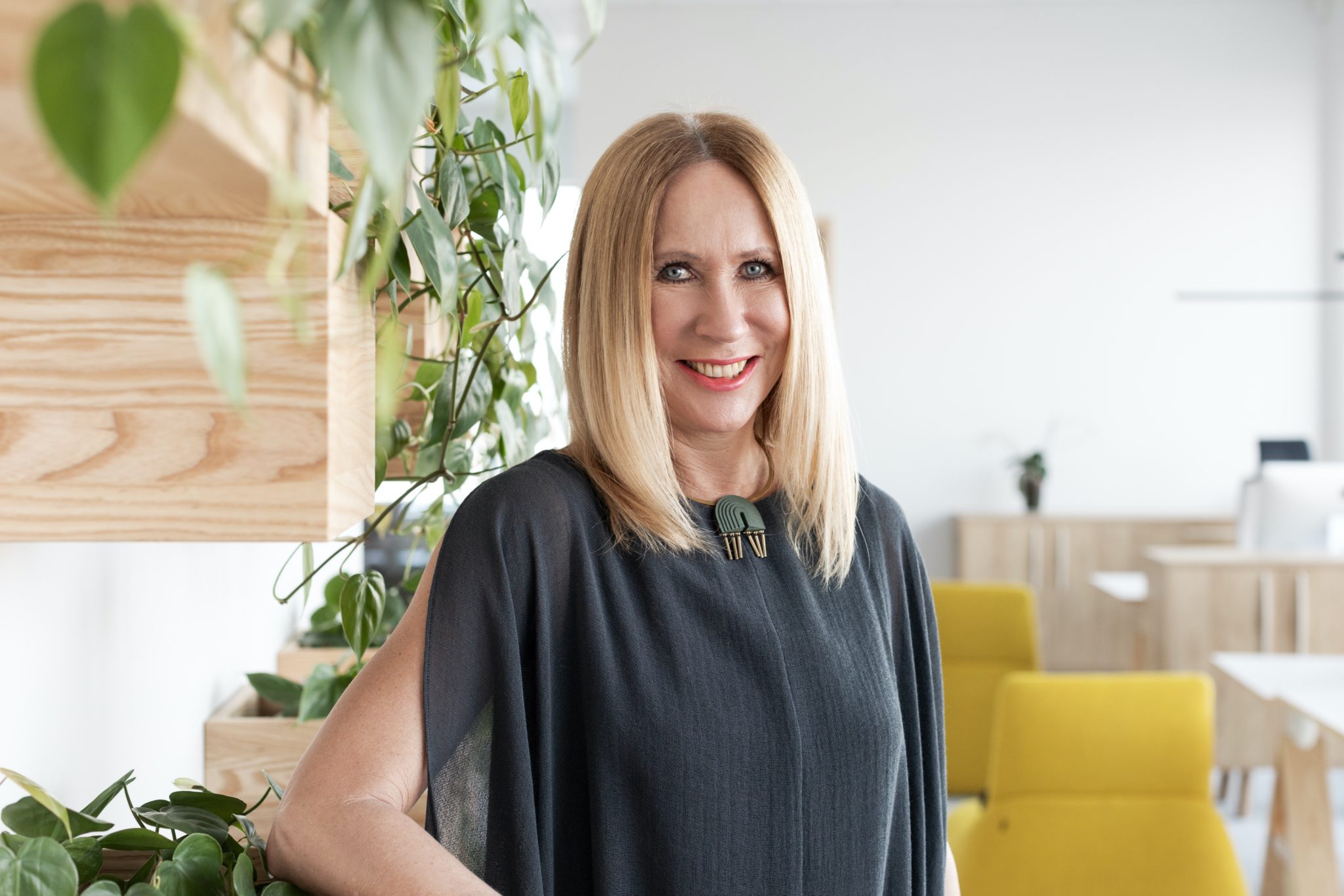Fast unbemerkt eröffnete Anfang dieses Jahres das estnische Fintech Modularbank sein Büro in Berlin. Geführt wird das Unternehmen von Vilve Vene. Seit 25 Jahren arbeitet sie in der Branche und entwickelte Finanztechnologie weit bevor Fintech ein Begriff wurde. So leitete sie beispielsweise die IT-Abteilung der baltischen Hansabank und gründete knapp zehn Jahre später Icefire, eine Art Fintech-Agentur, die das Steuerportal Estlands mitentwickelte. Zudem baute sie die Banking-App Pocopay auf. Die 120 Mitarbeiter erwirtschaften etwa zehn Millionen Euro Umsatz pro Jahr.
Das Fintech mit Sitz in Tallin ist Teil der FinTech Power 50 2020, einer jährlichen Liste mit den einflussreichsten und innovativsten Personen und Unternehmen der FinTech-Branche. Für das Berliner Büro konnten die Esten Lukas Huth, vormals tätig bei RatePay, als Director of Business Development gewinnen. Bis Ende des Jahres sollen im Berliner Büro rund 30 Mitarbeiter arbeiten.
Das Unternehmen will in den nächsten Jahren verstärkt auf dem deutschen Markt wachsen und führt daher derzeit Gespräche mit potenziellen deutschen Kunden, während zeitgleich das Produkt weiter ausgebaut werden soll.
Wie flexibel ist Ihr Zeitplan, gerade mit Blick auf die Covid-19-Infektion, für den Start in Deutschland?
Wir sind ja bereits in Deutschland gestartet und die derzeitigen Umstände ändern nichts an unserem Engagement auf dem Markt. Die COVID-19-Pandemie stellt Unternehmen und Menschen vor enorme Herausforderungen. Die aktuelle Situation macht schmerzhaft deutlich, wie wichtig vollständig digitalisierte Prozesse heute sind.

Dies wird jetzt allen Unternehmen klar, die bisher noch an nötigen Veränderungen gezweifelt haben. Und dieses neue Verständnis wird die Krise überstehen. Die Unternehmen müssen jetzt schnell die Schritte in Richtung Digitalisierung gehen.
Die Unternehmen, die digital genug sind, um ihre Mitarbeiter von überall arbeiten zu lassen, werden nicht nur überleben, sondern auch wachsen. Diejenigen anderen werden dagegen einen harten Kampf erleben. Das gilt auch für Unternehmen, deren Geschäftsmodell und Gewinne vollständig von Verbraucherausgaben abhängen – sie betrifft die Corona-Krise wahrscheinlich am meisten. Als Anbieter flexibler und innovativer Finanzdienstleistungen können wir helfen ihre Dienstleistungen schnell an die neue Realität anpassen – und haben so die Chance, gestärkt aus der Krise hervorzugehen.
Frau Vene, was zeichnet die Modularbank aus?
Modularbank ist zwar ein junges Unternehmen, aber wir sind ein erfahrenes Team: Modularbank ist als Spin-Off aus dem Fintech Icefire entstanden. Mit Icefire entwickeln wir bereits seit 17 Jahren mit heute über 110 Mitarbeitern Finanztechnologie für Banken und Fintechs. Insgesamt haben wir über 15 Banken und Finanzinstitutionen erfolgreich mit aufgebaut und wir sind für die Infrastruktur des Steuersystems von Estland verantwortlich.
Bereits heute bieten wir ein ausgereiftes Produkt, das leicht in die bestehenden Systeme integriert werden kann. Wir sehen uns jedoch nicht als reinen Plattformanbieter, sondern vielmehr als Partner für unsere Kunden auf ihrem Transformationsweg. Damit haben wir Erfahrung, das ist unsere Stärke. Technologie hilft uns die Probleme unserer Kunden zu lösen, aber sie steht für uns nicht an erster Stelle.
Sie haben eine langjährige Erfahrung im Bankwesen: Wie würden Sie die deutsche Bankenlandschaft beschreiben?
Die deutschen Banken haben erkannt, dass sie sich digitalisieren müssen. Doch sie haben großen Respekt davor, ihre komplette Infrastruktur anzugehen. Ihre Technologie basiert oft auf einem über die Jahre gewachsenen, aber im Kern alten System. Dieses ist nicht agil und ermöglicht weder ein starkes digitales Angebot noch die Möglichkeit, maßgeschneiderte Dienstleistungen anzubieten, wie variable Zinssätze auf der Grundlage persönlicher Umstände. Unsere Banking-Plattform lässt sich nahtlos in bestehende Geschäftsinfrastrukturen integrieren und ermöglicht solche Dienstleistungen in kürzester Zeit anzubieten.
„Die deutschen Banken haben erkannt, dass sie sich digitalisieren müssen doch sie haben großen Respekt davor, ihre komplette Infrastruktur anzugehen.“
Die deutschen Kunden sind hingegen bereit für moderne Technologie im Bankwesen, das zeigt der Erfolg der Challenger-Bank N26, aber auch eine kürzlich von uns durchgeführte Studie: Wir haben deutsche Verbraucher gefragt, welche Kriterien bei der Wahl ihrer Bank für sie entscheidend ist. Dabei haben wir herausgefunden, dass für mehr als 85 Prozent moderne Technologie ein wichtiges Kriterium ist.
Was ist so interessant am deutschen Markt im Allgemeinen …. und speziell für die Modularbank?
Gerade auf dem deutschen Markt sehen wir viel Potenzial. Denn: Hierzulange gibt es viele etablierte Unternehmen – egal ob Banken, Einzelhändler oder Automobilhersteller. Viele dieser Unternehmen befinden sich aktuell gerade noch am Start ihrer digitalen Transformation: Die Notwendigkeit wurde erkannt, aber oft fehlen klare Prozesse und die nächsten Schritte.
Darüber hinaus sehen wir einen Trend bei Nichtbanken (z.B. Einzelhändler, Versorgungsunternehmen), die damit beginnen, eigene Finanzdienstleistungen wie verschiedene Kreditlinien oder flexiblere Zahlungsoptionen einzuführen. Und hier passt Modularbank perfekt ins Bild. Es ist sehr einfach, unsere Plattform in bestehende Infrastruktur zu integrieren. Damit können Unternehmen ihren Kunden schnell und nahtlosen Finanzdienstleistungen anbieten.
Mein Gefühl ist, dass der Aufbau von Vertrauen in Deutschland sehr wichtig ist, und diesen Ansatz verfolgen wir: Wir wollen langfristige Beziehungen zu unseren Kunden entwickeln.
Wer sind Ihre Kunden bzw. an wen richtet sich das Angebot?
Im ersten Schritt sprechen wir vor allem drei verschiedene Gruppen an:
- Etablierte Finanzinstitute, die ihr derzeitiges Angebot mit neuen digitalen Diensten ausbauen möchten.
- Aufstrebende Fintechs, die ihre Produkte auf Basis einer flexiblen und wartungsarmen Plattform entwickeln möchten. Damit verkürzen wir ihre Zeit bis zur Markteinführung auf einen Bruchteil im Vergleich zur Eigenentwicklung.
- Händler, Telekommunikationsanbieter und Versorgungsunternehmen, die ihre Kundenbindung erhöhen und sich differenzieren wollen, indem sie ihren Kunden maßgeschneiderte Finanzdienstleistungen (z.B. Finanzierungsmodelle und flexiblere Zahlungsoptionen) anbieten und sich gleichzeitig durch die eigene Geldanlage neue Einnahmequellen schaffen möchten.
Mit Mambu und der Solarisbank gibt es bereits Wettbewerber auf dem deutschen Markt. Was macht Modularbank besser?

Durch das Produktdesign ist die Plattform extrem flexibel und über die offene Schnittstelle können die Module von Modularbank in jedes bestehende System und jede bestehende Technologie eines Unternehmens integriert werden. Das Team hat Erfahrung mit der Transformation großer Organisationen und so kann Modularbank eine extrem kurze Markteinführungszeit versprechen – die Integration erfolgt üblicherweise innerhalb weniger Wochen.
Unser Produkt ist zudem nicht nur als reine SaaS-Lösung verfügbar, sondern es werden auch weitere Modelle angeboten. Dadurch können wir sehr flexibel auf Kundenbedürfnisse eingehen. Weiterhin ist Modularbank nicht an die Plattform eines bestimmten Cloud-Anbieters gebunden, sondern ist auch hier unabhängig. Das ist vor allem für große Finanzinstitute von großer Bedeutung, wenn ihre internen Richtlinien den Betrieb ihrer geschäftskritischen Prozesse auf einer Public Cloud untersagen. Modularbank funktioniert auch in einer Private Cloud.
Solarisbank ist übrigens kein Wettbewerber: Unser Ziel war es nie, Banker zu sein oder eine Bank aufzubauen. Unsere Stärke ist unsere jahrzehntelange Erfahrung im Bankwesen und unserem damit verbundenen technischen Hintergrund. Daher haben wir bisher nicht in Betracht gezogen, eine Banklizenz zu erwerben, stattdessen konzentrieren wir uns als Technologie-Anbieter auf unser Kerngeschäft. Wobei wir das nicht grundsätzlich ausschießen möchten, wir sind immer offen für Partnerschaften.
Deutschland hinkt bei der Digitalisierung weit hinter Estland und allen anderen baltischen Staaten hinterher. Dies macht sich auch im Bankwesen bemerkbar: Wann wird Deutschland aufgeholt haben?
Auf der einen Seite hat Deutschland in Bezug auf die Digitalisierung noch einen langen Weg vor sich, aber auf der anderen Seite stehen dem Land viele Ressourcen zur Verfügung – nicht nur finanziell, sondern vor allem gut ausgebildete Menschen. Was ich jedoch aus der Erfahrung gelernt habe, sowohl in der Zusammenarbeit mit dem estnischen Staatssektor als auch mit verschiedenen etablierten traditionellen Banken: Der Kern einer Transformation ist die Unternehmenskultur und die Bereitschaft umzudenken.
Damit meine ich, dass Technologie nicht nur als eine Abteilung oder ein Projekt im Unternehmen gesehen wird, sondern, dass es in jede Ebene und Abteilung eingebunden wird. Es muss sich ein Verständnis dafür entwickeln, dass Technologie zwar ein Werkzeug, aber nicht die Lösung an sich ist. Nur dann können wir anfangen, über echte digitale Transformation zu sprechen. Aber machen wir uns nichts vor: Auch in Estland gab es unzählige erfolglose Initiativen im Bereich der Digitalisierung.
Wäre es für Modularbank daher nicht attraktiver gewesen, zuerst in den USA oder in Großbritannien zu starten?
In vielerlei Hinsicht wäre dies für uns einfacher gewesen, da die beiden Märkte aus unserer Sicht weniger traditionell und potenziell offener für die Digitalisierung sind. Im April starten wir übrigens auch in Großbritannien. Was wir jedoch in Deutschland sehen, ist das enorme Potenzial des Marktes: Der Bedarf und die Anzahl und Größe der Unternehmen.

Warum sind Ihrer Meinung nach die baltischen Fintechs in Europa und weltweit so erfolgreich?
Ich glaube, es hat viel mit unserer Vergangenheit zu tun. Die baltischen Länder sind erst seit 1991 unabhängig. Wir konnten uns direkt digital entwickeln, mit einem leeren Blatt, ganz ohne Altlasten – und das ist hier der Schlüssel. Das gleiche Prinzip macht heute die Challenger-Banken mit ihrer Mobile-First-Strategie so erfolgreich.
Gleichzeitig muss man sich vor Augen halten, dass die neuen Unternehmen Anfang der 90er Jahre nur über sehr wenig Geld verfügten. Das führte dazu, dass wir nicht nach international verfügbaren Lösungen suchen konnten. Wir waren gezwungen, unsere eigenen Produkte zu entwickeln. Das führte zu einem sehr fruchtbaren Umfeld. Jeder, der eine Idee hatte, konnte diese umsetzen. Die Startup-Szene gibt es im Grunde in Estland und anderen baltischen Staaten bereits seit den 90ern. Daraus hat sich ein Umfeld entwickelt, das Unternehmertum fördert. Ideen werden einfach auf dem Markt ausprobiert. Es ist extrem leicht in Estland ein eigenes Unternehmen zu gründen. Die Kompaktheit des Landes macht es zudem sehr einfach Gleichgesinnte zu finden. Das ist die Einstellung, die uns erfolgreich gemacht hat.





